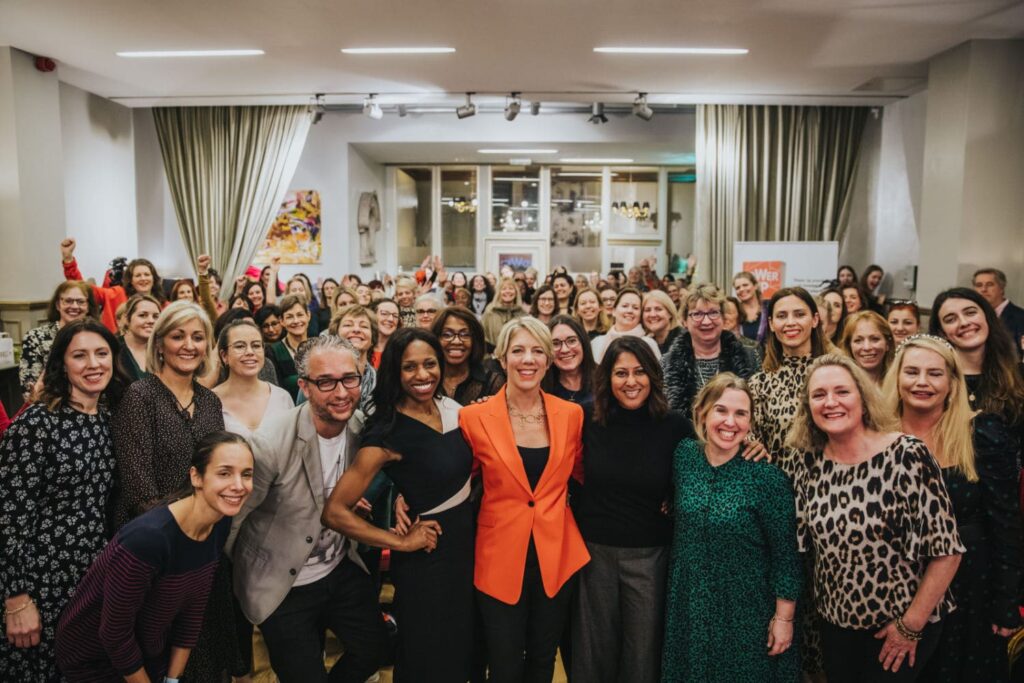 Ready to move on in your role? Applying for promotion? Think you deserve a pay rise? Those who don’t ask, don’t get.
Ready to move on in your role? Applying for promotion? Think you deserve a pay rise? Those who don’t ask, don’t get.
In the movie Field of Dreams, the main message is: “If you build it, they will come”. Unfortunately, that’s not the case in real life. The sad truth is you can’t sit there and hope you’ll be recognised and rewarded. Sometimes, you have to step up and request what you want. Even if your employer has made you an offer, you might be able to get a better one.
The secret is good negotiation skills.
I don’t mean being pushy or haggling like you might do in a bazaar. That’s another skill set altogether! I mean assertively asking for what you want, knowing what’s reasonable to expect, and deciding on your ‘walkaway’ position.
This blog explores the stages of a winning negotiation and the personal skills you can develop to get what you want out of those all-important career discussions.
What is negotiation?
Negotiating is about working to reach a mutually acceptable agreement, so both sides feel that they have ‘won’ and no-one feels they have ‘lost’.
Here’s the dictionary definition:
“Negotiate: Discuss in order to reach (an agreement);
succeed in passing round or over (a place or a problem).”
Why are negotiation skills important?
If you’re thinking of making a change, you’re not alone. The pandemic caused many people to rethink their career path.
The ‘Great Resignation’ (also known as the ‘Big Quit’ and the ‘Great Reshuffle’) began early in 2021 and is an ongoing trend in which a large number of employees are voluntarily resigning from their jobs.
The most common reasons for resigning include wage stagnation, rising cost of living, limited opportunities for career advancement, hostile work environments, lack of benefits, inflexible remote-work policies, and long-lasting job dissatisfaction.

Microsoft research (2021) showed that 41% of the global workforce was likely to consider leaving their current employer within 2022, with 46% planning to make a major pivot or career transition thanks to remote working. My work in corporates over the past year has borne evidence to this, with recruitment being high up on many leaders’ list of challenges as well as the latest phenomenon, quiet quitting, where employees don’t leave, but remain in a disengaged and demotivated state.
Source: https://www.microsoft.com/en-us/worklab/work-trend-index/hybrid-work
Although a massive challenge to employers, these trends present a great opportunity for you to ask for what you want and make sure you get it.
What stops people from negotiating the role/salary they want?
Many people are scared of negotiating because they think it’s a win:lose situation (and they’re scared of losing).
Negotiating isn’t a conflict, so it’s not helpful to think of it that way. It’s more about communicating your needs, being open to compromise, and reaching a solution that’s a win:win for both.
How to negotiate
If you want to negotiate, start by summarising, in one sentence, what you are negotiating for. The key stages of negotiation include:
- Plan
- Propose
- Discuss
- Bargain
- Close
Here’s a bit more detail about each stage…
Plan
Be prepared. If you can, find out the employer’s wants, needs and priorities. Anticipate difficult questions they may ask you and be ready with the answers. Prepare your arguments on paper before you start.
Note that email isn’t an appropriate form of communication when negotiating as the written word is too easily misunderstood. Wherever possible, negotiate in person. If this is not possible then set up a video call or pick up the phone. Negotiating face-to-face may seem intimidating but it will definitely save you time in the long run.
Propose
Ideally, get your request on the table first. Maybe start with ‘why’ you want what you want so they understand where you’re coming from. Decide what factors you can and cannot give way on. It’s better to negotiate a package rather than individual items or issues. Set clear boundaries. If they make the first offer, know that you can challenge it.
Discuss
Use active listening skills. Be sure you understand what the other person is saying by repeating it so they know they’ve been heard:
“I hear you say you’re worried about exceeding this year’s budget…”
Negotiation takes place between equals whatever their job titles, so maintain respect for yourself and the other party. Focus on the business objectives. Stick to the facts; don’t get drawn into negative emotions.
Find common ground. Remember, you are aiming to work towards an outcome that you can both be happy with.
“We’re in this together…”
Bargain
Never trade without gaining. That way the negotiation is balanced and equal. Remain firm and calm and avoid confrontation. If you make concessions, do so in return for something you want:
“If I do that, will you do this?“
“I’m willing to work the weekend to meet the deadline in return for time off…”
Close
Rushed decisions are rarely good ones that satisfy both sides. If things get heated or you can’t reach agreement, take a break, walk away, and perhaps resume the conversation another time. It is much better to be patient. Always end each stage of a negotiation positively and keep the door open for further talks.
Make notes during any related conversations and agree any resolution in writing as soon as possible. Both parties should agree each stage of the negotiation before closing the deal.
Negotiation mindset
The best way to win is to be optimistic, believing that you will succeed.
There are three other qualities you can develop to help make you a better negotiator: expertise, presence and magnetism which I talk about in more detail in my books.
Expertise
In order to demonstrate your worth, you need to be able to communicate your expertise and points of difference. This doesn’t just mean the qualifications and experience on your CV; it also encompasses your internal qualities and uniqueness.
Your expertise underpins your authority and provides evidence that you deserve the role or salary you want.
Expertise is the tangible measure that people will use to rate you, so it’s OK to share your expertise widely and generously. This is not the time to hide your light under a bushel! But avoid overdoing it, or it will be seen as arrogance.
You do this by demonstrating your breadth of knowledge about your subject, your energy, focus and dedication. Typically, you’ll be calm in a crisis, remaining rational, grounded and under control.
Presence
Presence is about how other people see you – your ability to capture and hold attention from the moment you enter a room. It’s an aura that compels an audience to pay attention, inspires and attracts others to follow your lead.
Without it, you may feel your voice is unheard or even find yourself being interrupted in meetings, ignored at networking events and struggling to engage with your team.
To win in a negotiation, you need to ‘dial up’ your presence so you radiate strength, sincerity and substance – like turning up your inner flame from a subtle glow to a shining light.
Characteristics of presence include: passion, inner strength, individuality, attraction and likeability (there’s more on all these in the Presence chapter of my Leading With Gravitas book).
Take the opportunity to speak first as this conveys confidence and asserts your right to be in the room. Dress in your signature style, choosing an outfit that makes you feel great and attracts the right kind of attention. Display your personal quirkiness (while remaining respectful, of course). Maybe even exaggerate your gestures and facial expressions (especially if online) to increase your impact.
Skills include using your body language, vocal tone and word choice to make an impact.
With presence…
- Your body will feel at ease, comfortable and energised
- Your posture will be open, relaxed and aligned
- Your eye contact will be clear, direct and unwavering
- Your voice will be steady, melodic and resonant
- Your language will be well-considered, respectful and appropriate
Magnetism
Developing your personal magnetism makes it easier for you to influence people and persuade them to say ‘yes’.
To do this, move beyond thinking about what’s best for you to what would be best for all concerned. This helps prevent the parties in a negotiation from getting entrenched in their own position, so they look at their shared interests instead.
Ask yourself what your current or future employer cares about most. What are they interested in? How can you match that?
Think about a project you’ve worked on that’s relevant and reflects you in a good light. Be ready to share that story.
Practice illustrating your skills and capabilities and conveying your personality. Give credit where it’s due but focus on the results you achieved and their impact. Rehearse with a trusted friend and a recording device until it comes across as natural, not a script.
Never be too proud to be the first to move towards a resolution. If, despite your best efforts, the employer says ‘no’ to your request for a new role or higher salary, don’t’ give up. Find something everyone can agree on and get the conversation moving forwards:
- “You need to find the right person for the role, is that right?”
- “Can we discuss another way of giving me the job fulfilment I want even if that particular promotion isn’t available to me?”
- “Could I perhaps job-shadow someone at your organisation for a day to help convince you I’m a fit?”
- “If we agree this new salary now on a temporary basis, shall we review it in three months to ensure it’s working for us both?”
- “If there’s currently no budget for a pay rise, perhaps I can save myself time by working from home more often instead?”
What next?
If you found this information useful, you might also benefit from reading (or re-reading) my recent articles on a similar topic:
For practical, relevant and effective strategies and techniques for success in your life and career, read my leadership development books.
My 2022 gravitas masterclasses are sold out, and I’m now taking bookings for events in March, April, September and October 2023. Check out my upcoming events.



